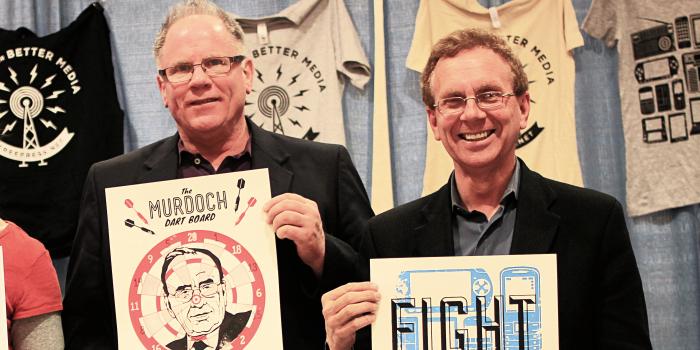Free Press Calls on the FCC to Update Its USF Programs and Push for Permanent Funding of the Affordable Connectivity Program

WASHINGTON — On Thursday, Free Press called on the Federal Communications Commission to reinvent its Universal Service Fund (USF) policies so that millions more people can afford the costs of connectivity in the United States.
In comments submitted to the agency, Free Press urged the Commission and Congress to redraft policies crafted in the late 1990s, and last overhauled more than a decade ago, to reflect the sector’s many changes. Free Press wrote, “the good intentions that fueled that effort are no longer a reliable blueprint in a fundamentally changed marketplace. And however good those original intentions were, their implementation since 1996 has been marked by too many missteps and cascading concessions to incumbents.”
The FCC’s high-cost universal-service deployment policies are still structured to benefit legacy telephone monopolies, resulting in massive waste of funds and extra cost burdens placed on consumers. “The Infrastructure Act’s investments take away any last excuses for maintaining these outdated policies,” Free Press writes. “Indeed, Congress recognized as much, and mandated this inquiry so that the Commission could revisit its policies and revise them for the future.”
In 2021, Congress passed the Infrastructure Investment and Jobs Act, which also included more than $14 billion for broadband-affordability measures overseen by the FCC. To better manage the appropriation, the agency slightly revamped its Emergency Broadband Benefit program as a more permanent Affordable Connectivity Program (ACP).
In its comments, Free Press urged the agency to call on Congress to provide the funding needed to make the ACP permanent.
Free Press Research Director S. Derek Turner said:
“The Infrastructure Act gives the FCC the opportunity to shake off the weight of a quarter-century’s worth of path-dependent USF policymaking. Congress has appropriated more than enough funds to ensure adequate broadband facilities are deployed and available to every person in every corner of the nation. The Commission must now reduce all unnecessary subsidies for building and maintaining networks in rural and high-cost areas, and focus on ensuring that the broadband market is maximally competitive and offers affordable options to everyone.
“The sizable investments from the Infrastructure Act aren’t just for rural deployment. Congress also realized the need to help low-income families get and stay connected. The Affordable Connectivity Program is already benefiting more than 10 million U.S. families in need. But help is needed for millions more people who still can’t afford the cost of a connection. The FCC must urge Congress to make the ACP a permanent program, and appropriate the funding needed to ensure that low-income households can afford broadband long after the Infrastructure Act appropriation expires.
“The FCC should also reject the cynical plea from giant corporations that want to dramatically lower their own USF contributions by imposing new regressive taxes that would be passed on to consumers.
“It isn’t surprising that these massive corporate interests would like to see their contributions cut, but their calls to broaden the contribution base would likely result in as much as a $4-billion annual shift of their USF fees to hardworking families.
“Clearly, this shift would not be in the public interest. It would frustrate the FCC’s universal-service goals by making broadband more expensive for consumers, and it would disproportionately harm low-income families. This is why we strongly urge the Commission to recommend that Congress fully fund universal service and provide much-needed relief to ratepayers.
“Congress, not consumers, should provide the funding needed to ensure affordability for those in need. Congress must make the ACP permanent and fund it at the levels needed to ensure equitable broadband access.”




